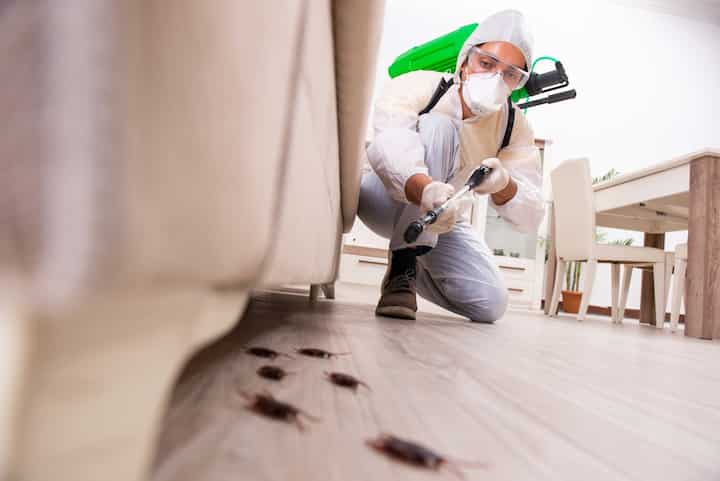About Ellsworth Termites
Providing termite inspection Ellsworth, Maine locals depend on!
One of the worst issues any household can experience is termite infestation. These silent destroyers slowly and gradually chew through your wallpapers, flooring, and wood. Fortunately, our professionals can help eliminate the problem regardless of the damage extent and severity. Ellsworth Termites has a history of successful Ellsworth termite control cases. Because termite infestation is pretty common in the US, thousands of customers have reached out to us till now for help. We have dealt with mild to moderate and severe cases and haven’t failed to please our customers. Our professionals inspect the termite damage severity and use a suitable solution to control pests. We blend Integrated Pest Management (IPM) with our unique termite control techniques to remove termites. Our goal doesn’t focus solely on termite elimination. Instead, we aim to identify the root cause of the problem. For instance, your home structure may have cracks or locked moisture that could be encouraging termite growth. Having treated a plethora of cases in the past, our termite inspection professionals seek to eliminate the problem source. This prevents termite growth in the future. We also detect the termite type and take preventive measures accordingly. The diet, affect, habitat, and prevention techniques of different termite types vary significantly. As such, a single treatment method doesn’t work for all. Our skilled team at Ellsworth Termites of Ellsworth determines the termite infestation type and takes preventive measures accordingly.
Termite problems in Ellsworth
Every homeowner styles their property to fit their unique tastes. From quality flooring to trendy wallpapers and cozy bedding to silky drapes, we take steps to make our home a haven. Beyond that, we take measures to keep our home tidy and hygienic. While these steps help us create a peaceful home environment, a few unexpected events cause unwanted troubles for us. One such problem that tops the list of annoying issues that Ellsworth homeowners face is termites. It wouldn’t be wrong to consider it a terrible nightmare for families. You might have spent thousands of dollars installing top-notch wooden doors, windows, and furniture. But unfortunately, the notorious termites take only a few hours to cause structural damage. Even worse, once your home gets exposed to termites, they continue to form colonies, and the structural damage caused by them is often irreparable. Nonetheless, recognizing termite infestation at the right time helps you save your money. As soon as you spot termites in your home, you must get in touch with a professional termite exterminator in Ellsworth, Maine to mitigate the problem. We are one of the reputable termite inspection providers in Ellsworth. Our experts access the termite damage extent and design an appropriate action plan to prevent the problem. We aim to treat the current termite problem and offer genuine solutions to keep your home from pest infestation in the future.
5 things you must know about termites
Termites are active in warmer climates
Termites are more active in rising temperatures than in colder climates. This is because they work during the hotter months of the year to store food for winters. This indicates they are a year-round threat to areas that experience warmer climates throughout the year. For instance, you are at risk if you live in the southern states. However, note that the National Pest Management Association tells us that this pest exists in every region of the US. Therefore, your home isn’t ruled out entirely. Regardless of how well-maintained your property is, you must be vigilant about infestation. One of the best ways to identify the problem is to inspect your home time and again. Because they have an ability to remain hidden, they aren’t easy to spot until you stumble across visible damage. However, knowing their bodily structures and learning more about their habits can help you identify them early on.
Termites leave warning signs
While termites are notorious for being destroyers, they are also ill-famed for being sneaky. You could be facing a problem for days, but you wouldn’t even know it. Nonetheless, regardless of how stealthy they tend to be, they leave a few warning signs. Any savvy homeowner can spot them; slight diligence is required, however. Here are a few symptoms of termite infestation.
- The wooden structures would produce hollow sounds on tapping them.
- Your paint and walls would appear bubbly and cracked
- You’ll come across a swarm of winged insects around your house, typically outdoors – near the light
- Lastly, you’ll observe mud tubes on crawl spaces, walls, and wooden structures
Simple termite prevention steps can help
In the event of termite infestation, there’s nothing better than getting in touch with a professional termite exterminator in Ellsworth, Maine. They know how to handle the job and will take a few hours to eliminate the problem. However, you can take a few steps to protect your home (more on the topic below). Simple precautionary measures include.
- Keeping downspouts and gutters free of clutter, dirt, and debris, the healthier the environment, the lower the chances of pest infestation.
- Keeping lumber and firewood away from your property
- Installing exterior vents and screens
- Eliminating moisture by fixing leaks
Termites are not deadly, but dangerous
Many individuals question if termites are deadly. While soldier termites have the capability to bite humans, they’ll do so only if handled carelessly. Therefore, termite removal is best left to professionals. Essentially, these pests bite wood and other cellulose materials. They also may attack other insects but rarely have any human attacks reported yet. Even if they bite, their sting isn’t life-threatening. Simply put, they are dangerous but not deadly. Harmful in a way that they damage your home materials, and delaying their removal might destroy your belongings beyond repair.
Termites have sense organs and use vibration to communicate
Termites consist of sense organs at the base of their tibiae and antenna. These help them feel vibrations, allowing them to select food sources they want to infest. For instance, the sense organs help them feel the vibroacoustic signals of wood pieces. Additionally, they use vibrations to exchange messages. As soon as the soldier termites sense a threat, they bang or tap their heads against the surfaces. This action produces vibrations and alarms the entire colony. Consequently, the insects take action to prevent themselves from getting attacked.
How to prevent termite damage in your Ellsworth property?
Taking early steps to keep termites out of your home is way better than trying to eliminate them after infestation. The United States Environmental Protection Agency (EPA) shares tips to make your home less vulnerable to termites. During construction:
- Leave ventilation space between wood and soil and consider using a concrete foundation.
- Enclose open wood surfaces using a metal barrier or sealant.
After construction:
- Keep the soil surrounding your Ellsworth home dry through a proper drainage system. This includes maintaining downspouts and gutters.
- Keep plants and vents free from unwanted obstruction.
- Do not grow shrubs and trees too close to your home. Also, avoid exposing wood surfaces to plants.
- Eliminate openings that allow termites to access your home. This might require you to fill in the cracks.
Further, the National Pest Management Association also shares guidelines to prevent termite infestation during the spring season.
- Inspect your Ellsworth home for mud tubes, rotting wood, damaged structures, and visible termite existence.
- Nothing attracts termites more than water. So, make sure you remove moisture sources to limit the chances of their presence.
- Avoid stacking piles of firewood closer to your home. Also, if you’ve bought some and want to keep them closer to your property, do not forget to inspect them for termites. Otherwise, you might be introducing termites to your home yourself.
- Consider discarding old grade stakes and boards from your property as they might encourage termite growth.
- On spotting visible termite infestation signs, call a licensed professional organization immediately.
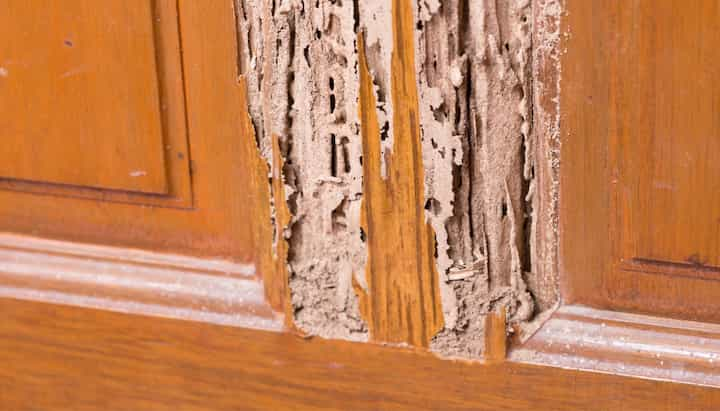
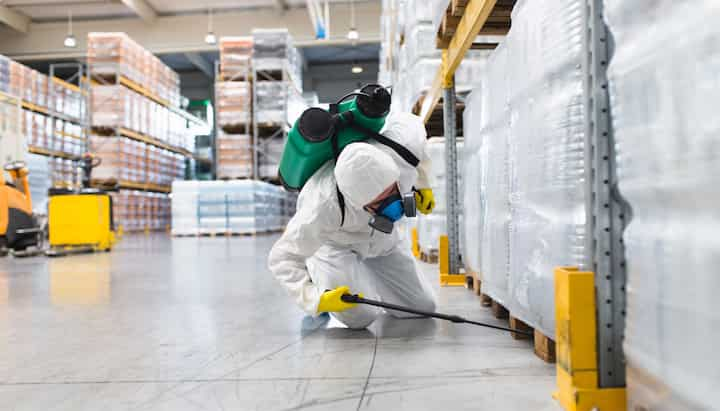
What are termites?
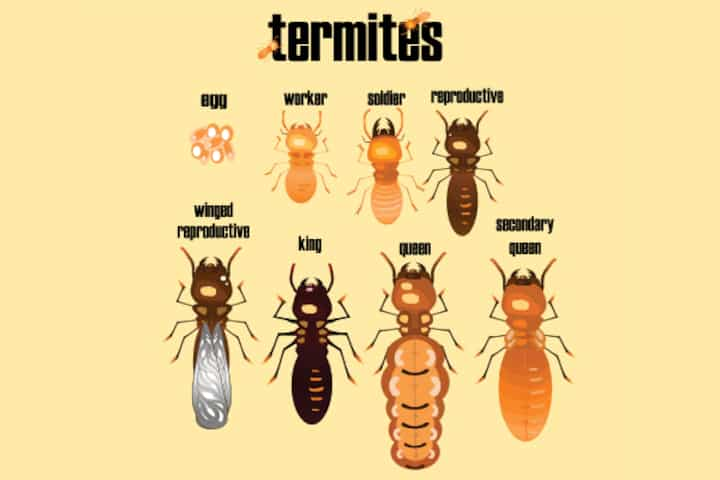
Termites: A Comprehensive Guide to Understanding, Prevention, and Control
Introduction
Termites, often perceived as silent destroyers, are prevalent wood-destroying organisms that can cause extensive damage to structures and property. With their insatiable appetite for cellulose, termites can compromise the integrity of buildings, bridges, and other wooden constructions if left undetected and untreated. This comprehensive guide provides a thorough understanding of termites, their behavior, detection, and effective control measures to safeguard your property.
Types of Termites
- Subterranean Termites: The most common type, these termites live in colonies underground and construct tunnels to reach their food sources, primarily wood. They are responsible for significant structural damage.
- Drywood Termites: As their name suggests, these termites infest dry wood and do not require soil contact. They are known for their ability to infest furniture, flooring, and other wooden items.
- Dampwood Termites: These termites prefer wood with high moisture content and can be found in decaying logs, firewood, and wooden structures exposed to moisture.
Signs of Termite Infestation
Visible Damage
- Mud tubes: Subterranean termites construct mud tubes on foundations, walls, and other surfaces to travel from their colonies to their food sources.
- Hollow-sounding wood: Termite activity can create hollow areas within wood, producing a hollow sound when tapped.
- Buckling or sagging floors: Termite infestations can weaken wooden structures, leading to buckling or sagging floors.
Subtle Indicators
- Discarded wings: Swarmer termites shed their wings after mating, and these discarded wings can be found near windows, doors, or other entry points.
- Frass: Termites produce fecal pellets called frass, which resemble sawdust or fine sand and may accumulate near infested areas.
- Unusual noises: Termites make clicking or rustling sounds as they move through wood, which may be detectable in quiet environments.
Prevention and Termite-Proofing
Construction Practices
- Use termite-resistant building materials: Pressure-treated lumber and concrete are less susceptible to termite infestation.
- Maintain proper drainage: Divert water away from foundations and wooden structures to reduce moisture that attracts termites.
- Seal entry points: Caulk or seal cracks and gaps around pipes, doors, and windows to prevent termites from entering.
Physical Barriers
- Termite shields: Metal or plastic shields can be installed between the soil and wooden structures to block termite access.
- Gravel barriers: A layer of gravel around foundations can deter termites from entering.
- Trenches: Digging a trench around the perimeter of a structure and filling it with gravel or other termite-resistant material can create a physical barrier.
Chemical Treatment Options
Liquid Termiticides
- Soil Treatment: Liquid termiticides are applied to the soil around foundations and other areas where termites may enter, creating a chemical barrier.
- Wood Treatment: Liquid termiticides can be injected directly into infested wood to eliminate existing termites and prevent future infestations.
Baiting Systems
- Termite Baits: These systems contain slow-acting bait that termites feed on and share with their colony, eventually eliminating the infestation.
- Monitoring Stations: Baiting systems often include monitoring stations where termite activity can be detected and tracked.
Importance of Professional Termite Control
- Experience and Expertise: Professional termite control companies have the knowledge and experience to identify termite species, assess the extent of infestation, and recommend the most effective treatment plan.
- Comprehensive Treatment: Professionals have access to a range of treatment options, including liquid termiticides, baiting systems, and physical barriers, to ensure a comprehensive and lasting solution.
- Safety and Compliance: Professional termite control companies adhere to industry standards and safety regulations, ensuring the safe and effective application of termiticides and other treatment methods.
DIY Termite Control: A Word of Caution
While DIY termite control products are available, it is generally not recommended for several reasons:
- Inaccurate Diagnosis: Identifying termite species and determining the extent of infestation requires expertise that is often not available to homeowners.
- Ineffective Treatment: DIY products may not be strong enough or applied correctly to eliminate an active termite infestation.
- Chemical Hazards: Termiticides can be harmful if not handled and applied properly, posing risks to health and safety.
Conclusion
Termites pose a significant threat to wooden structures, but with a comprehensive understanding of their behavior, detection methods, and effective control measures, you can safeguard your property. Remember, prevention is key, but prompt professional treatment is crucial if an infestation occurs. By following the guidelines outlined in this guide, you can protect your investment and maintain the structural integrity of your buildings.
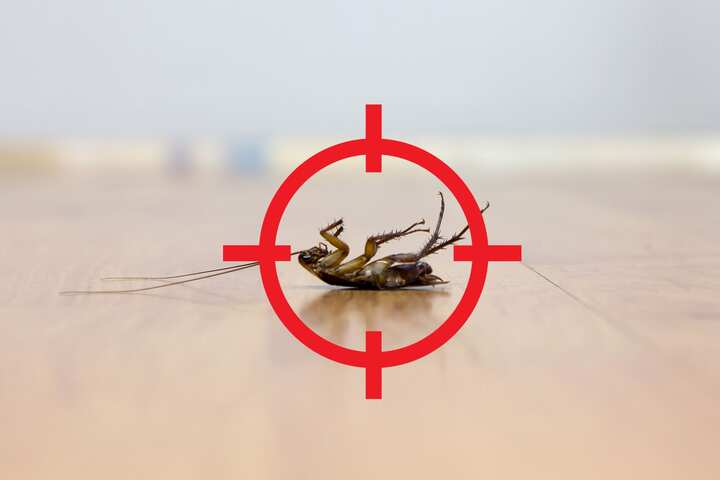
Let’s look at some exciting termite facts to learn more.
- Mature termite colonies include 60,000 to 1 million termites. Nonetheless, this can differ depending on the termite colony type.
- The king and the queen hold a prominent position in termite colonies. However, the colonies aren’t limited to these; several other castes include workers, reproductives, and soldiers.
- When a reproductive termite wants to reproduce, they grow wings and fly away for mating purposes. This gives birth to a new colony.
- The female and male termites are called “swarmers” and “alates.”
- Alates typically have wings that go missing in soldiers and worker termites.
- 50 out of the 2750 species of termites are found in the United States. Among them, 20 are infamous for causing structural damage to properties.
Getting in touch with a professional termite company
While preventive measures beforehand offer an excellent way to avoid the vexing pest infestation issue. If you fail to protect your home, there’s nothing better than contacting a termite treatment company in Ellsworth, Maine . Our Ellsworth termite removal professionals are skilled at termite elimination. They spot the visible and hiding termite on your property and carefully handle its removal. Slight negligence during termite elimination might damage the structures further. Our expert team, however, manages the entire process cautiously. This minimizes structural damage and lowers the risk of termite spread in your home. We also identify the source of termite infestation and share tips to protect your property from pests in the future. Contact us to speak with one of our contractors and get Ellsworth termite treatment today!
Contact Us Today